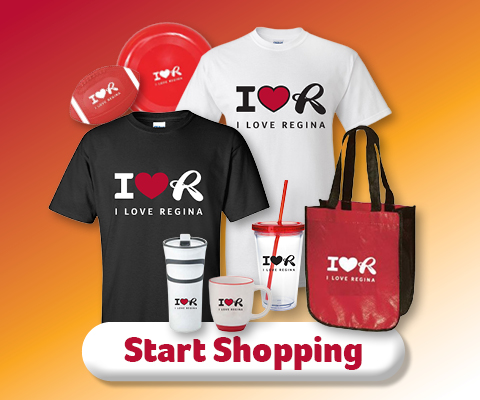Transportation, Roads & Parking
Find information on getting around Regina including transit services, parking, road construction,
seasonal maintenance, walking and cycling.
Transportation Master Plan
The Transportation Master Plan provides a framework for how the City of Regina will address its future transportation needs over the next 25 years.
Investing in Arts and Culture
dition begins. The Centre brings to life the story of the RCMP using state of the art exhibits,
multimedia technologies, and engaging programming and tours. The
building is owned and operated by the Mounted Police Heritage Centre, a non-profit, volunteer
governed, charitable organization incorporated under the Non-Profit Corporations Act of
Saskatchewan. Regina Downtown Business Improvement District The Regina Downtown Business
Improvement District (RDBID) is an organization that provides a range of business and community
services to promote and enhance Downtown’s unique assets, to improve conditions for businesses
operating in the district, and to improve the quality of life for those who shop, work, live and
play downtown. Regina Downtown supplements services provided by the City of Regina. The boundary of
the downtown district encompasses 53 blocks defined by Angus Street to the west, 13th Avenue to the
south, Halifax Street to the east, and Saskatchewan Drive to the north. RDBID also extends along
Broad Street south to College Avenue. Regina Farmers’ Market Co-operative Regina Farmers’ Market
Co-operative (RFM) is incorporated under the Non-Profit Corporations Act of Saskatchewan, and is a
co-operative, the members of which are the market’s vendors. The purpose of the organization is to
provide a destination for high quality, local Saskatchewan products, and they have been
representing Saskatchewan producers and serving Regina and area customers since 1975. The RFM
operates from March to December in downtown Regina on Saturdays and Wednesdays. RFM indoor markets
run on Saturdays in March, April, October, November, and December. The products are all made,
baked, grown, or designed in Saskatchewan and represent the growing diversity of the city and
province. Regina Folk Festival Inc. The Regina Folk Festival Inc. (RFF) is a registered charity and
is incorporated under the Non-Profit Corporation Act of Saskatchewan. The RFF is dedicated to both
the presentation of and increased awareness and application of live, high quality and diverse
music. The RFF also strives to contribute to the development of the music community both locally
and nationally. Hosting a community music festival for over 50 years in downtown Victoria Park, a
winter festival called Winterruption, and a year-round Regina Folk Festival Concert Series, the RFF
contributes culturally and economically to the city of Regina and the province of Saskatchewan.
Regina Multicultural Council The Regina Multicultural Council offers multicultural initiatives for
its members and the public, and supports and promotes the diverse programs offered by their
members. These programs continue to make strides in the community, enabling culture to be at the
forefront in Regina and providing opportunities for residents to be engaged in multicultural
activities. Regina Symphony Orchestra The Regina Symphony Orchestra (RSO) is a registered charity,
is incorporated under the Non-Profit Corporation Act of Saskatchewan, and has been operating for
over 110 years. The RSO is a full scale professional orchestra which creates compelling live
orchestral music experiences that provide a platform for social, cultural and economic
transformation across southern Saskatchewan. During a 39 week season, the orchestra presents a
Masterworks, Pops, Chamber Music, Children’s, and Special Concerts series. In addition, the RSO
undertakes music education and outreach initiatives that inspire children and youth that contribute
to personal and community well-being. Saskatchewan Science Centre The Saskatchewan Science Centre
is a non-profit, non-governmental educational facility with the mission of igniting scientific
curiosity in Saskatchewan communities through interactive, dynamic, and engaging opportunities.
Their vision for the future, in fulfilling that mission, is inspired minds through science and
innovation. The Science Centre is one of Saskatchewan's largest family tourist attractions with
more than 5 million visitors since its opening in 1989. Saskatchewan Writers’ Guild Inc. The
Saskatchewan Writers’ Guild (SWG) is registered under the Non-profit Corporations Act of
Saskatchewan, and since 1969, has been representing writers in all disciplines and at all levels of
achievement. ...
City Square Booking Checklist
Review the City Square Plaza Booking Checklist before completing your application form.
Neighbourhood Guidelines Review Tool
The Complete Neighbourhood Review Tool has been developed to assist in the assessment of Secondary & Concept Plan Applications
Design Standard - Transportation
View the Transportation Design Standard.
Big Moves
he City will explore electric or hydrogen-powered options, or renewable diesel as a transition
fuel. Increase active transportation and transit useWalking,
wheeling and cycling are examples of active transportation. Together, transit and active
transportation - along with micromobility like e-bikes and electric scooters – are the building
blocks of sustainable transportation networks. Why? Transportation, including personal and
commercial vehicles, makes up 26 per cent of energy use in Regina. By making it easier for people
of all ages and abilities to move around the city using active transportation, transit, and other
sustainable modes, we can improve health and community wellbeing while reducing the number of motor
vehicles on the road which, in turn, reduces emissions. What’s the plan? The City will introduce
programs and initiatives that improve and expand public transit and active modes of transportation.
An important part of this work will be building safe infrastructure that protects cyclists,
pedestrians, and drivers. What’s the goal? By 2025, transit will account for 25 per cent of trips
within Regina. By 2050, active transportation methods will account for 50 per cent of all short
trips. Leading by example: City employees will be encouraged to use active transportation and
transit for their commute. Active transportation and transit use are already being improved
throughout the community. In 2022, City Council approved the Regina Transit Master Plan which
guides decision making to make transit a primary mode of transportation and to make our community
more accessible and sustainable. The Transportation Master Plan is under review and proposes
dedicated infrastructure for active modes of transportation. The plan will chart a path for
creating strong cycling and walking/wheeling networks and increasing
the number of people using active modes for commuting to work or school as well as for recreation.
Clean and re-energize industry Currently, the industrial sector accounts for one-third of Regina's
emissions. The sector faces some unique challenges but can lower emissions significantly by
improving the energy - efficiency of industrial processes, switching to alternate fuels, and
transforming the products and services the industry provides. Why? Primary industry includes
industries that are involved with extracting natural resources from the earth so they can be turned
into products used by people. Currently, these industries produce significant emissions while also
supporting the community’s economy, for example through employing approximately one percent of
Regina’s labour force. There is an environmental, economic and business case for industry to adapt
and not be left behind. What’s the plan? The sector can lower emissions significantly by improving
the energy- efficiency of industrial processes, switching to alternate fuels like hydrogen and
renewable natural gas, and transforming the products and services the industry provides. What’s the
goal? To increase energy efficiency by 30 per cent and electrify 50 per cent of process heat by
2050. Primary industry will reach net-zero emissions by 2050. Leading by example: The City will
facilitate advancement in this area by hosting working groups, sharing best practices and publicly
showing support for initiatives. The City will bring together industry stakeholders and
low-emissions energy providers to determine pilots and paths forward to decarbonize industry. Get
Involved & Learn More Current Initiatives Renewable Regina


